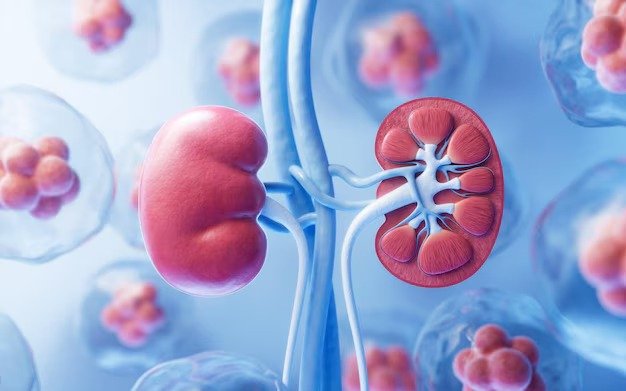Introduction
Nephrology emerged as the leading internal medicine subspecialty post-WWI. Kidneys are vital for bodily function, filter waste, regulate fluids and minerals, control blood pressure, and produce urine and erythropoietin.
Moreover, individuals with kidney disease experience impairment in kidney function, often stemming from conditions such as hypertension and diabetes.
The National Kidney Foundation reports that kidney disease affects roughly 37 million adults, while an additional 80 million are at risk. Additionally, racial minorities have a higher incidence of kidney disease, with African Americans being approximately four times as susceptible.
In this article, let’s learn more about the kidney, kidney diseases, and worldwide research.
What is Nephrology
Nephrology is a vital medical branch specializing in the comprehensive study, diagnosis, and treatment of kidney-related diseases. This involves a multifaceted approach, employing clinical, laboratory, imaging, and histopathologic techniques to assess kidney function and structure.
On the other hand, Nephrologists are dedicated to preserving kidney health through tailored interventions, including dietary adjustments, medication, and kidney replacement therapy. They adeptly manage various complications such as hypertension, fluid retention, and electrolyte imbalances, ensuring holistic care for their patients.
Moreover, Nephrologists play a crucial role in addressing chronic conditions like diabetes and hypertension, which significantly impact kidney function, alongside managing acute renal failure cases. Collaborating seamlessly with transplant teams, they extend their expertise to oversee the care of kidney transplant recipients, ultimately striving to enhance patient quality of life and prevent complications.
Areas of Focus in Nephrology
Nephrologists may focus on diagnosing and treating various kidney disorders, catering to specific patient groups, or conducting specialised procedures. Specialised areas within nephrology encompass:
- Critical care nephrology
- Diabetic kidney disease management
- Dialysis oversight
- Geriatric nephrology (for age 65+)
- Interventional nephrology (including dialysis access and arteriovenous fistula surgery)
- Renal oncology (kidney cancer)
- Kidney stones treatment
- Kidney transplant care
- Paediatric nephrology (infants to adolescents)
Latest Treatment Options in Nephrology Care
Research and innovative developments shape treatment paradigms for kidney-related conditions in nephrology care. Some of these innovations are:
Kidney Fibrosis Treatment:
Researchers found increased histone lysine crotonylation (Kcr) in fibrotic kidneys, driven by the ACSS2 enzyme. Histone lysine crotonylation (Kcr) is a new acylation modification discovered in 2011 having important biological significance for gene expression, cell development, and disease treatment.
TGF-β for Improved CKD Treatment:
In Chronic Kidney Disease (CKD), TGF-β, a transforming growth factor affects kidney cell mitochondria, worsening the disease. However, in diseased conditions, TGF-β loses its anti-proliferative response and becomes an oncogenic factor.
Moreover, recent research shows blocking TGF-β in mice’s proximal tubules increases mitochondrial damage and inflammation. Similar issues were found in CKD patients’ kidney samples. Hence, this new insight may lead to new CKD treatment approaches targeting TGF-β pathways.
Denosumab in Osteoporosis Patients with Kidney Disease
In a recent innovation, Denosumab, commonly used for osteoporosis in advanced kidney disease patients, raises concerns about severe hypocalcemia. A study of 2804 older females on dialysis reveals a higher risk compared to oral bisphosphonates. Prolia now carries a boxed warning, emphasising intensified monitoring during treatment.
Genetic Solution to Mitigate CKD
New research reveals that certain APOL1 gene variations increase chronic kidney disease (CKD) risk in people of West African descent. However, another mutation, p.N264k, counters this risk. In vitro studies show that p.N264k reduces the harmful effects of high-risk APOL1 variations. This suggests potential drug targets for CKD prevention.
Enhanced Advance Care Planning for Dialysis Patients
A study in 42 dialysis clinics with 430 patients and their decision-makers showed improved patient-surrogate communication through 45-60 minute discussions led by clinic healthcare workers. This approach reduces end-of-life decisional conflicts and increases adherence to care goals among dialysis patients, enhancing their overall care experience.
Medicinal Options in Nephrology Care
Medicinal Options in Nephrology Care delves into the diverse pharmacological interventions available for managing kidney-related conditions.
Renaglob
Renagold Tablet is frequently prescribed as a nutritional supplement for individuals suffering from chronic kidney failure and uremia. Its primary function is to inhibit the elevation of urea levels in the bloodstream from consuming non-essential amino acids among kidney failure patients.
Uriglob/Uriglob D
Uriglob Tablet effectively relaxes muscles in the bladder and prostate to alleviate symptoms associated with an enlarged prostate. This relaxation enables easier urination, providing rapid relief from urinary difficulties.
Trientine HCL Capsules
Trientine Hydrochloride is prescribed for Wilson’s disease, functioning as a copper-chelating agent. Its mechanism involves binding surplus copper in the body’s tissues and facilitating its elimination through the kidneys in the urine.
Selaglob
Trientine Hydrochloride reduces high blood phosphorus levels in dialysis patients. Selaglob Tablets stop phosphate absorption in the intestine, reducing blood phosphate levels.
Kalara
Calcium Polystyrene Sulfonate reduces high blood potassium levels, particularly in kidney conditions such as anuria, severe oliguria, and chronic kidney disease. It’s also utilised to lower potassium levels in patients undergoing regular dialysis.
Febuglob
Febuglob Tablet treats gout by lowering uric acid levels. It’s for patients unresponsive to allopurinol. Also used for hyperuricemia in adults with hematologic malignancies at medium to high TLS risk during chemotherapy.
Deferglob
Deferglob Tablet is prescribed for managing chronic iron overload resulting from recurrent blood transfusions. Its function involves eliminating surplus iron from the body and lowering the likelihood of organ damage induced by iron accumulation.
Conclusion
Innovations in nephrology care are revolutionising treatment approaches for kidney-related conditions, addressing diverse challenges with promising solutions.
The landscape of nephrology is evolving, from groundbreaking genetic insights offering potential preventive strategies for chronic kidney disease to enhanced communication practices improving end-of-life care for dialysis patients. Furthermore, advancements in medicinal options provide tailored interventions, such as Renagold for nutritional support and Trientine HCL for Wilson’s disease.
These developments underscore nephrology’s commitment to optimising patient outcomes and enhancing the quality of life, ushering in a new era of personalised and effective kidney care.
Globela Pharma offers high quality and affordable nephrology solutions across 50+ countries.


